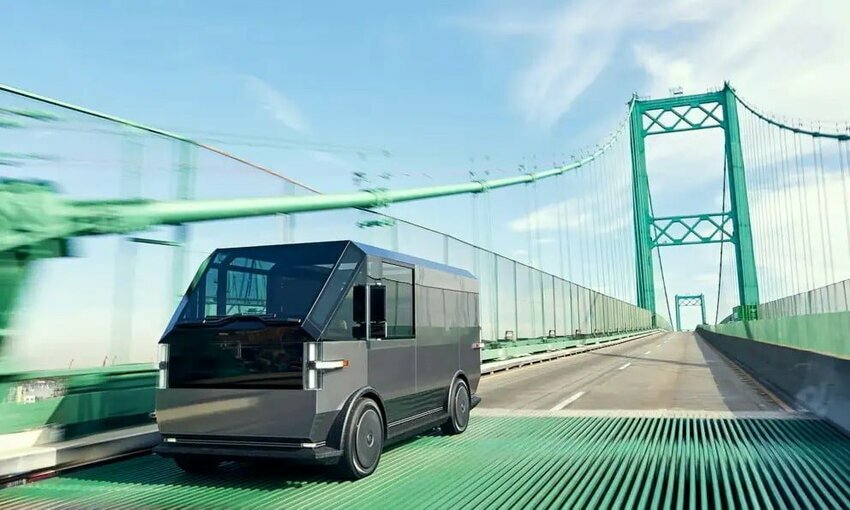 (Credit: Canoo)
(Credit: Canoo)Canoo Technologies has expanded its electric cargo van line with the addition of its new Lifestyle Delivery Vehicle (LDV) 190. The new model boasts maximum cargo density and enhanced safety while maintaining the smallest footprint and longest EV range in the Class 2 electric cargo van segment.
"This newest vehicle offers even greater space and flexibility for fleet owners with the same unique technologically advanced performance of our original LDV 130," said Tony Aquila, Chairman and CEO of Canoo. "As we build out our family of vehicles over time, we expect to continue to bring forward models and options that improve safety, reliability, performance and are zero emission."
This expansion follows similar growth elsewhere in the EV cargo industry, including Holcim’s recent purchase of 1,000 electric trucks from Volvo and WattEV’s expansion of their EV truck charging network.
Canoo plans to produce 20,000 vehicles per year by the end of 2023 and is building an assembly plant and battery plant in Oklahoma.
Support for the development of these new vehicles stems from the recent expansion of Canoo's manufacturing facilities in the state of Oklahoma. Canoo has finalized agreements on workforce and economic development incentives from the state of Oklahoma and the Cherokee Nation, representing a combined value of $113 million over 10 years.
The agreement allows Canoo to receive performance-based payments from Oklahoma’s Quality Jobs Program and the Quick Action Closing Fund, both of which will contribute to workforce training that makes production of the new cargo vans possible. The Department of Commerce has also confirmed the company’s eligibility for tax credits and exemption programs.
"It's been a multi-year effort to get to this point, and we are delighted to have finalized these agreements which enable Canoo to hire more than 1,300 Oklahomans and fulfill the vision of its state and tribal leaders to bring new industry to the state," says Aquila. "We're grateful for the warm reception we've received, and we look forward to further building upon our relationships with state and local government and tribal leaders to realize their vision for Oklahoma."